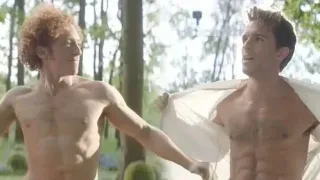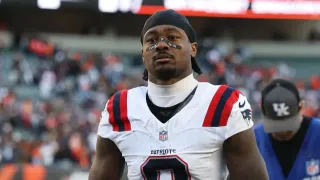February 20, 2015
The DUFF
Padraic Maroney READ TIME: 3 MIN.
The 1980s and late 90s were a golden time for teen-centric comedies. In the 80s, you had John Hughes spearheading the charge with films like "The Breakfast Club" and "Ferris Bueller's Day Off." A decade later, a more widespread movement was happening in Hollywood, which led to classics like "Clueless," "Cruel Intentions," and "She's All That."
As with most trends, low quality cash grabs began sprouting up in theaters, and people stopped paying to see them. Since then, the occasional movie like "Mean Girls" comes along to give hope that a new era of quality teen movies might be on its way. The latest film to give audiences hope is "The DUFF."
A D.U.F.F. is the designated ugly, fat friend in every circle of friends. Now, being that this is Hollywood, there's hardly anyone in the film who should ever be considered a DUFF. Nevertheless, in an age of political correction, the film bends over backwards trying to soften the term's edges by stating that anyone can be a DUFF because there is always someone else prettier, smarter, and better.
"The DUFF," based on the book of the same name by Kody Keplinger, owes much of its DNA to teen comedies that have come before it. It is "She's All That" for a new generation, even hitting many of the same beats as the classic teen movie. The difference here is that rather than waiting for the quarterback to come save her, Bianca is an independent woman who takes matters into her own hands. She asks her neighbor and childhood friend, who happens to be the quarterback of the football team, to improve her status at school in exchange for helping tutor him in science. She might not be considered the prettiest girl in school, but Bianca is smart and knows how to blackmail with the best of them!
In adapting the book, screenwriter Josh A. Cagan attempts to flesh out the characters with subplots showing that their lives aren't as perfect as they might appear to the casual observer. The film manages to keep things mostly light, except when dealing with the troubled home lives of Bianca and Wesley. In Wesley's case, trying to shoehorn an unhappy home life doesn't easily fit because he's barely more than a stereotype and giving a brief, passing glimpse feel like an afterthought added to explain why he wants to leave for college so badly. At least in Bianca's case, Allison Janney was cast as her detached, motivational speaking mother. Janney doesn't have much screen time, but she is manages a full character arc in that short time.
Thanks to Mae Whitman's all in attitude and razor sharp tongue, "The DUFF" is able to pull off more laughs than many might expect. Known mostly for her dramatic work on both television and as a child actor, Whitman is celebrating the end of her long running role on NBC's "Parenthood" by showing a different side to herself. It's a side that she will hopefully continue to show in more leading comedic roles.
On the other hand, Disney Channel graduate Bella Thorne is the resident mean girl who has made it her job in life to terrorize Bianca. While the actress has the venom spewing part of the role down, she also comes across as wooden, and looks extremely uncomfortable throughout the film. She isn't done any favors by her make-up, which is so heavy at times that she could be a contestant on the new season of "RuPaul's Drag Race." Still, there are some laughs to be had, many unintentionally at Thorne's expense. Of the punch lines that she does land, you might be left wondering if she even knows why everyone is laughing in the first place.
"The DUFF" attempts to walk a tricky line of using a term that is provocative while still trying to make it mainstream and not offensive. For the most part, the film accomplishes its goal while still providing entertainment. The pre-requisite teaching moment is maybe a little gooier than in other films in the genre, but there is still enough here for you to happily send a friend request!






